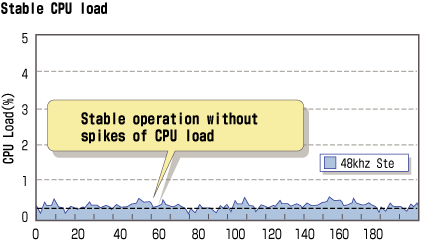 |
CRI ADX
Last Updated: 2025-05-07 13:34 p
|
 |
CRI ADX
Last Updated: 2025-05-07 13:34 p
|
| Codec | Description |
|---|---|
| ADX compression | High-quality, low-load codec with a compression ratio of about 1/4 |
| HCA compression | High-quality, high-compression codec with a maximum compression ratio of 1/16 |
| HCA-MX compression | HCA data subjected to special encoding for HCA-MX playback |

| Function | ADX | HCA | HCA-MX | Note |
|---|---|---|---|---|
| Loop playback | Yes | Yes | Partial | In order to use loop playback in HCA-MX, the number of samples in loop interval must be the multiples of 128. |
| Seek playback | Partial | Yes | Partial | In seek playback in ADX, noise may occur depending on the starting position or loop position. In seek playback in HCA-MX, sound may be distorted at the starting position. |
| Seamless concatenated playback | Yes | Yes | No | |
| Filter callback | Yes | Yes | No | |
| Volume change | Yes | Yes | Yes | |
| Pan change | Yes | Yes | Yes | |
| Pitch change | Yes | Yes | No | |
| Envelope setting | Partial | Partial | No | Whether envelope setting is possible or not depends on the target. |
| Biquad filter | Yes | Yes | No | |
| Band-pass filter | Yes | Yes | Partial | Band-pass filter in HCA-MX only allows the sound to be changed by 1/256th of the sampling rate. |
| Bus send level setting | Yes | Yes | No | |
| Bass Effects | Yes | Yes | No |